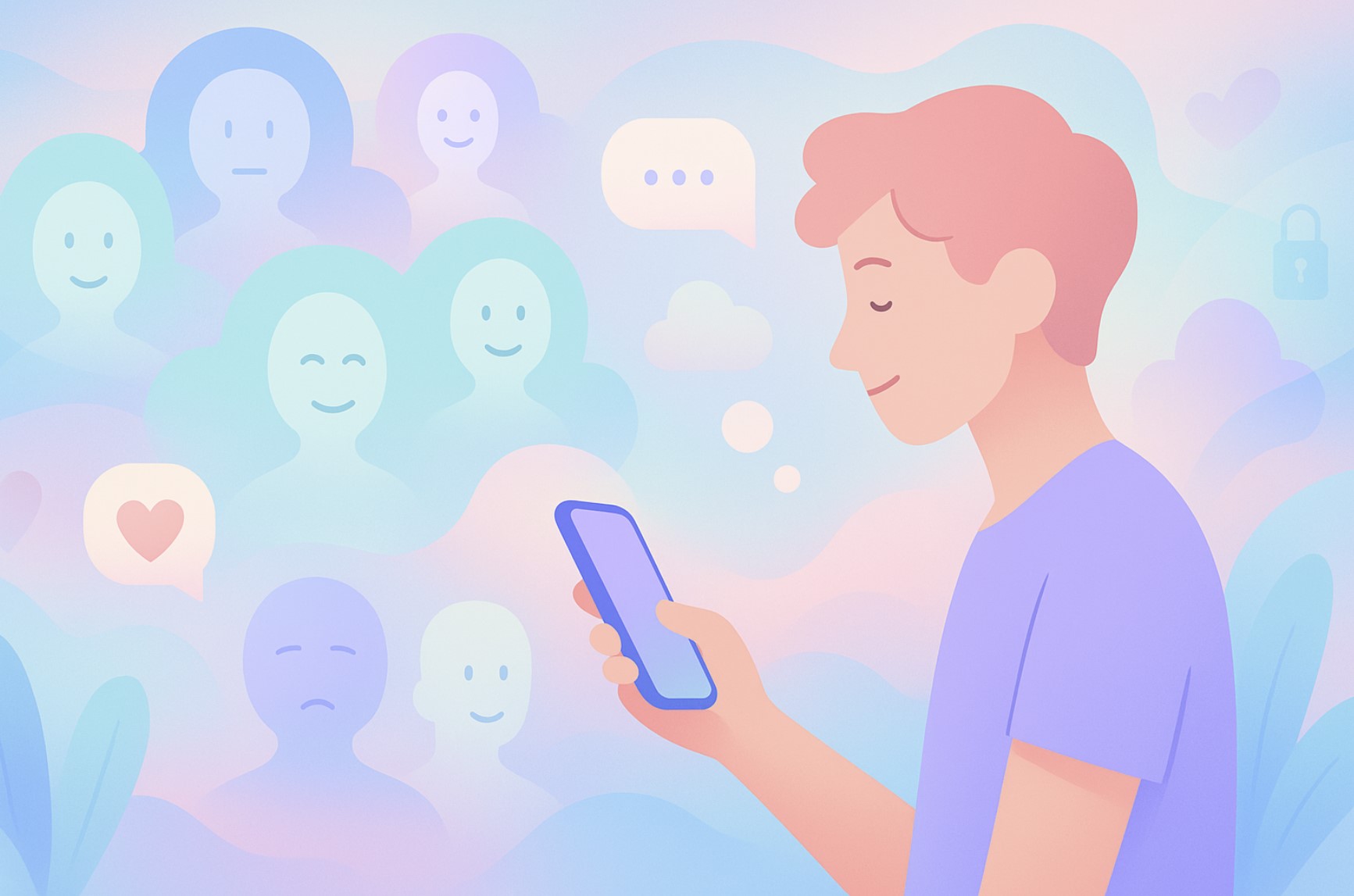Why Anonymity Breaks Down Communication Barriers: A 2025 Glimpse Into the Future

Imagine for a moment that it’s 2035. Your online identity is a collection of avatars, masks, and profiles that you can swap at will. Today you’re a deep philosopher, tomorrow a quantum‑physics expert, and the day after that just an anonymous listener who needs to get something off their chest. Sounds like science fiction? In reality, the trend is already budding today, in 2025, and at its heart is anonymity as a fresh form of communication.
Anonymity: Why Hide Your Face?
Ask someone why they chose an anonymous account and the most common answer is: “I feel freer this way.” But what’s behind that freedom?
Fear of Judgment and “Me, Unfiltered”
From birth we learn to control our emotions, words, and actions. Since childhood we’ve heard: “You can’t do that,” “What will people think of you?” Anonymity strips away those psychological filters. It’s like being a child again—no need to worry about what others might say.
In 2025 we already see the rise of platforms such as Whisper, Yik Yak, and YourSecret, where people openly share feelings they’d never voice even to close friends.
By 2030, virtual reality is set to make anonymous interaction even more immersive. People will literally be able to try on any mask, fully freeing themselves from familiar social constraints.
Humanity 2.0: Anonymity as a New Humanism
It may sound like a paradox, but anonymity actually makes us more human. Why?
Empathy Without Borders
When we don’t know who’s on the other side of the screen, prejudice disappears. Age, race, gender, looks, and status—everything that separates us in real life—stops mattering. What emerges are simple questions and sincere answers.
On anonymous platforms a person can get support in situations where, in everyday life, they might hear, “It’s your own fault.” Thousands of people speak anonymously about mental‑health struggles, receive help, and help others. It’s a new form of collective therapy, and by 2035 anonymous support communities could become routine, woven into daily life.
Honesty Over Status
On social media we’re used to likes, followers, and reputation. Anonymity erases that hierarchy. Today, in 2025, users increasingly prefer forums and platforms where the idea—not the person—matters. This is real democracy in conversation. The future of social platforms lies in anonymous discussions where every voice carries equal weight.
A New Era of Social Media: From Selfies to Avatars
The trend of recent years is clear: we’re tired of the “perfect life.” People no longer need to pretend to be successful and happy. Anonymity relieves the pressure—no one expects perfection.
Picture a 2035 social network where, instead of selfies, you choose a unique digital avatar that reflects not your appearance but your inner state, emotions, and mood. Your profile says more about you than the best photo ever could. In this world there’s no pressure to look successful—only room for sincerity and openness.
Communication Without Borders: Multicultural Anonymity
In 2025 the language barrier is already fading thanks to AI translators. By 2030 it will be completely normal: an anonymous user from the U.S. can talk freely with an anonymous partner from Japan without worrying about cultural differences.
Anonymity will, for the first time in history, enable global communities tied not by nationality but by shared problems, interests, and goals. The internet will finally become a truly common space for everyone on the planet.
Risks and Dark Sides of Anonymity: What to Watch Out For
Aggression and Toxicity
Feeling unpunished, people may show aggression and cruelty. To counter this, platforms must craft new safeguards: intelligent moderation, emotional filters, and AI that detects hostile intent before it escalates into conflict.
By 2035 anonymous platforms will be required to employ emotional analytics: AI will scan message tone, predicting and preventing clashes.
Responsibility and Trust
If we don’t know who is talking to us, can we trust what they say? Future platforms may solve this through hybrid anonymity: users verify their identity to the system but remain anonymous to others. The system maintains a reputation score that preserves honesty and safety in communication.
The “Perfect Storm” of Anonymity: What Awaits Us in 2035?
Over the next ten years the internet will become both more personalized and more anonymous. Your virtual avatar will shift depending on the context. At work you’re a serious expert, in the evening an adventurer, and in hard times a vulnerable person seeking support.
Social networks that don’t adopt anonymous mechanics will fade, because anonymity is freedom from the artificial image. This trend isn’t about fear or isolation but about openness, sincerity, and empathy.
By 2035 we might even find it odd to show our real face online—because true honesty will emerge only when the formal markers of who you are in everyday life disappear.
Bottom Line: Anonymity Is the Freedom to Be Human
Why does anonymity remove communication barriers? Because behind a mask we become more honest, empathetic, and open. The era of perfect selfies and inflated bios is ending. The future belongs to anonymity, where only your genuine inner truth matters.
And maybe that’s the future we’ve all been waiting for: a world where labels don’t matter—only human sincerity.
Welcome to a new age of humanity, where the mask isn’t deception but the only path to being yourself.